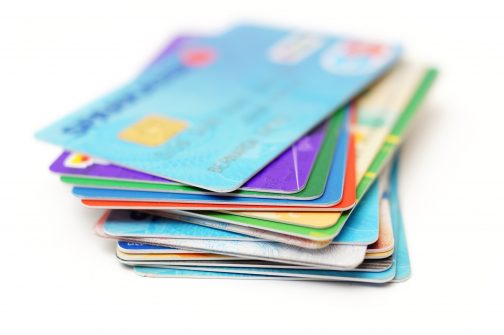

It is very common to find people with multiple credit cards. And why not? Every day we are bombarded with mailers, messages and phone calls from credit card issuers citing various benefits of using their credit cards. However, there is a contrarian viewpoint that too many credit cards mean too many options to borrow money, which may lead to unmanageable debt. So, is it wise to have multiple credit cards?
What works in favour of owning multiple credit cards?
Maximises reward points: Most of the credit card reward programmes are aimed at specific type of transactions. While some cards extend reward points on fuel transactions, others offer benefits on air travel spending, dining or even shopping. Using the right credit card for specific transactions can maximise reward points for you. For instance, using petro card for refuelling makes more sense than using regular credit cards as the benefits that you would get in return will be far higher vis-a-vis lifestyle card etc.
Overcomes limit on reward points: Many credit cards impose a cap on total reward points that can be credited in a particular billing cycle. Having another card will allow you to continue making purchases.
Backup in case of theft or lossof card: It takes at least three or more working days to receive a replacement card in case of loss or theft of the original credit card. Having two or more credit cards will ensure that you don’t have to compromise on your monetary requirements.
Improves your credit score: Having multiple credit cards can improve your credit score by lowering your credit-utilisation ratio. This ratio is the proportion of your total debt against your total credit limit. For example, if you have a card with credit limit of Rs 50,000 and you exhaust Rs 20,000 in a month, your credit-utilisation ratio for the month would be 40%. Now, if you spread your transactions between two credit cards with similar limits, your credit-utilisation ratio will come down to 20%. Lower credit utilisation means that you are less credit hungry and hence, less likely to default, which in turn increases your credit score. Ideally, your credit-utilisation ratio should not be more than 30 %.
Interest-free period: Interest-free period is the difference between the date of credit card transaction and due date of payment for that billing cycle. Purchases made during the initial days of the billing cycle enj oy s more interest-free days vis-a-vis the ones made towards the end of the cycle. Having two or more cards with their due dates spread across the month allows you to make the most of interest-free period.
What works against owning multiple credit cards?
Difficult to manage: Multiple credit cards mean multiple bills and due dates. People having difficulties in keeping a track of the bill schedule may end up missing repayments which can lead to late payment fees and interest on outstanding bill. To avoid such situations, you can opt for auto-pay option wherein the due amount will get automatically deducted from your savings account.
Possibility of increased spending: With too many credit cards in their hand, people lacking financial discipline often end up overspending. This can reflect poorly on your credit score, incase you fail to make timely payment.
Negative effect on credit score: As each new credit application or enquiry brings down your credit score, applying for too many credit cards within a short period of time can temporarily lower your credit score. Avoid applying for newer credit card if you are planning to take a home loan or a car loan.
There is no harm in availing multiple credit cards if you are financially disciplined and can take care of multiple bills and their due dates. Make sure that you are well versed with reward points and credit limit on each of your cards. On the contrary, you must avoid buying multiple credit cards in case you lack financial discipline.
By Naveen Kukreja, Managing Director, PaisaBazaar.com
(Published in The Financial Express on April 26, 2016)
1 Comment Comments
Thank you for the terrific article